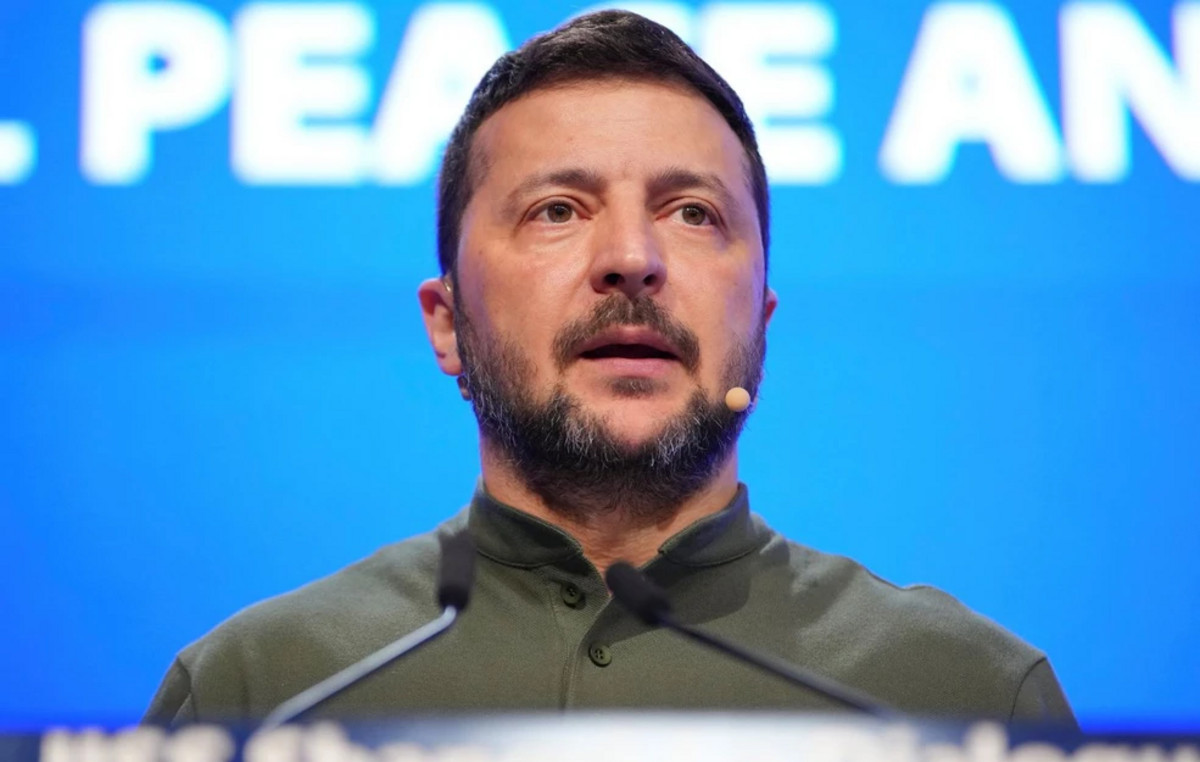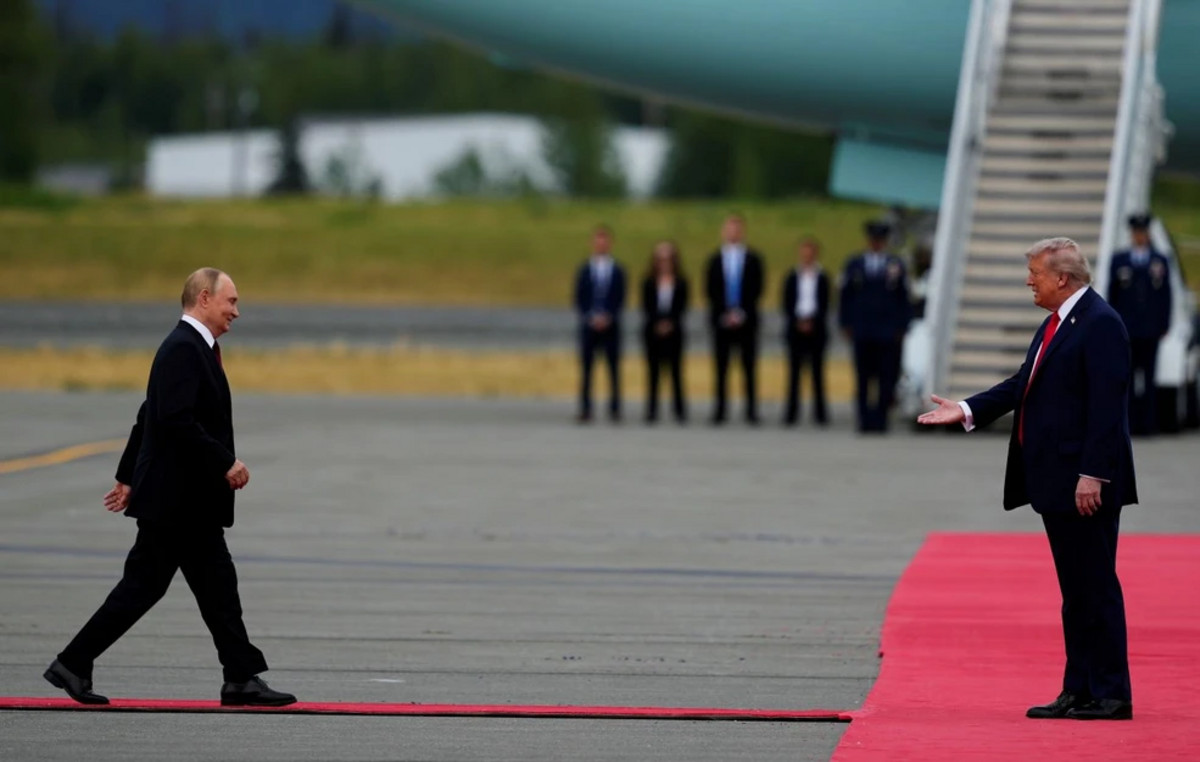Israeli Defense Minister Israel Katz warned Hamas that Israel will maintain a permanent presence in parts of the Gaza Strip if the hostages are not released. The statement comes as Israel intensifies a new offensive in the enclave.
The war in the war was interrupted on Tuesday when the Israeli government bombed Gaza, breaking two months of ceasefire that allowed hostage release in exchange for Palestinian prisoners.
Katz said Friday (21) that he had instructed the Israeli army “to capture additional areas in Gaza, sending withdrawals to the population, and expand security zones around Gaza to protect Israeli communities and welded through the permanent maintenance of territory by Israel.”
“The more Hamas refuses to free the kidnapped, the more territory they will lose to Israel,” he added. It was unclear if Katz meant that there will be an indefinite occupation of parts of Gaza.
Katz’s comments come after Hamas said he was in contact with mediators to try to restore the ceasefire that was in force between January 19 and Tuesday.
Katz said Israel joined the proposal of US President Donald Trump’s envoy to the Middle East Steve Witkoff of releasing all hostages, alive and dead, “in advance and two stages with a ceasefire in the middle-without endangering Israeli security interests.”
Meanwhile, Israel would intensify the attacks of the air, sea and earth, and “civil means of pressure” would be adopted along with military pressure, “including the displacement of the population from Gaza to the south and the implementation of President Trump’s voluntary transfer plan to Gaza residents.”
Hamas, meanwhile, says it is considering the latest US ceasefire plan for Gaza and remains “fully involved” in the mediation process.
In a statement on Friday, Hamas said it was deliberating on a Witkoff proposal, which suggested extending the first phase of the ceasefire agreement until early April. The group reiterated the demand for a permanent end of the war, saying that it was exploring “several ideas on the table in a way that aims to achieve a prisoners’ exchange agreement that guarantees the release of the detainees, end the war and guarantee a withdrawal.”
Witkoff’s proposal last week would have guaranteed the release of a handful of live hostages held by Hamas in exchange for the extent of the ceasefire between Israel and Hamas, said the CNN . Of the 59 hostages still detained in Gaza, it is believed that less than half is still alive.
Witkoff proposed that the extension of the ceasefire extended until the end of Easter, extending the pause in the fighting and renewing the entry of humanitarian aid through the Sacred Muslim month of Ramadan and the Jewish holiday.
Hamas insisted on maintaining a previously agreed schedule with Israel and the US that would move the parts in conflict for a second phase of the truce, in which Israel would commit to finishing the war. But Israel refused, saying that he wants to extend the first phase.
Khaled Meshaal, a high Hamas employee, on Thursday accused Israel of using the Witkoff plan to “blackmail Hamas to recover the (hostage) of the first phase of the agreement without committing to the second phase obligations, which include a lasting truce and the complete withdrawal of the Israeli army from the Gaza Strip.”
The Israeli attacks have killed more than 500 people and wounded almost a thousand in Gaza since the fighting resumed, according to the Ministry of Health of the Enclave. Hamas fired rockets against Israel on Thursday for the first time since the truce was broken, but no victim was reported.
At least nine members of Hamas, including high group officials, are among the dead, according to Israel’s defense forces (FDI). The dead include this al-Dalis, the head of the Hamas Government in Gaza; Mahmoud Abu-Watfa, the Interior Minister; and Ahmed Al-Hatta, the Minister of Justice, according to the FDI.
Following the launch of rockets on Friday, the FDI ordered the removal of the population of neighborhoods in northwestern Gaza, such as “a notice before an attack. Terrorist organizations are returning and firing rockets from populated areas,” the Army said.
UNICEF said the number of children killed on Wednesday marked “one of the largest numbers of children’s deaths in a single day last year.”
The Israeli army said on Thursday that it began a land operation in the city of Rafah, southern Gaza. The city of the city reported on Friday that more than 100 civilians were killed during the bombing-most of them children and women. He also said that the residents were being forced out outdoors, without shelter or food.
Egypt, one of the main mediators in the conflict, gave a dark assessment of the possibility of new negotiations.
Asked by CNN If Israel seems to be willing to return to the negotiating table, Egyptian Foreign Ministry spokesman Tamim Khallaf said: “No and I think it is an isolationist policy and works diametrically opposite to what the global community would like to see: an end to this war.”
Egypt had no indication that Israel would violate the ceasefire in Gaza when Israeli negotiators were in Cairo on Sunday, just two days before the Israelis attacks, Khallaf told Becky Anderson from CNN In an interview on Thursday.
“We have not received these nominations. We were involved in ceasefire negotiations in order to move forward with phase two and phase three,” he said, calling Israel’s return to war a “blatant violation” of the ceasefire agreement “that will trigger cascade effects.”
This content was originally published in Israel will maintain “permanent” presence in Gaza if hostage not released on the CNN Brazil website.
Source: CNN Brasil
Bruce Belcher is a seasoned author with over 5 years of experience in world news. He writes for online news websites and provides in-depth analysis on the world stock market. Bruce is known for his insightful perspectives and commitment to keeping the public informed.







